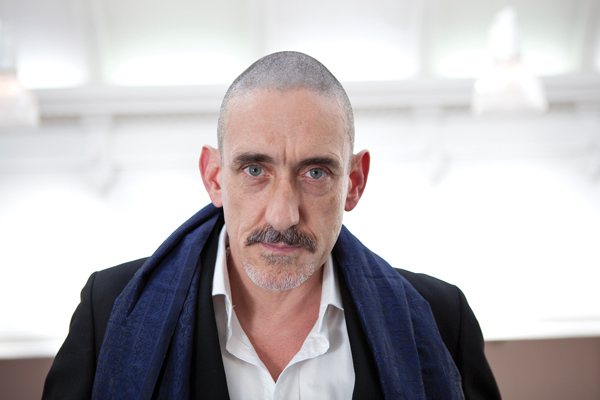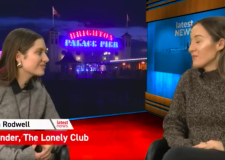Stage: Blood, Sweat & Bartlett
In a rare live performance as Neil Bartlett revisits his formative works and premiers a new solo

Neil Bartlett’s CV reads like a who’s who of modern theatre and sexual politics. In a career that has seen him work with many of the most influential theatre makers of a generation, he has still found time to write several brilliant novels and works of non-fiction, translate, produce and direct classic theatre, manage a major theatrical company and remain a poignant and respected voice in the world of gay politics.
It was in 1982 that he set up his first company, and early projects included Brecht and Aspazija. He also worked with Simon McBurney as part of The Beechbuoys and they appeared at the first London International Festival of Theatre. In ‘83, he worked as an administrator for gay community theatre company Consenting Adults in Public, helping stage and tour Louise Parker Kelley’s Anti Body, the first play produced in Britain to address the AIDS crisis. He also created his first original theatre project, Dressing Up, a triptych depicting three centuries of London’s gay subculture. Other early works were staged at the ICA, the Drill Hall and Battersea Arts Centre, as well as touring arts centres and the occasional nightclub.
In ‘85 he worked as a director for Theatre de Complicite, helping create More Bigger Snacks Now, the show that won a Perrier Award and brought them national attention.
In ‘88 he published his first book, Who Was That Man? – a study of Oscar Wilde, and set up the collective company Gloria, together with Simon Mellor – who was later to run the Lyric Hammersmith with him. The company created and toured 14 projects over ten years, ranging in scale from the first intimate version of Night after Night, upstairs at the Royal Court, to Seven Sacraments at Southwark Cathedral, a performance-oratorio featuring choir, children’s chorus, dancers and full orchestra alongside Bartlett himself. The shows ranged from revivals of classics to original devised performance. Throughout was a deliberate challenge to divisions of genre between high and low, ‘radical’ and ‘traditional’. The pieces were often shown in the unlikeliest of venues; the Edwardian splendour of the 1,500-seat Blackpool Grand, the main stage of the Royal Court, a lecture theatre in the London Hospital, then Southwark Cathedral. He also used innovative casting, providing surprising new contexts for established performers like Sheila Hancock and Maggie Steed as well as outsider artists and artistes such as Francois Testory, Bette Bourne and Regina Fong.
Throughout the ’80s and ’90s Bartlett was also busy as an activist working on London’s first International AIDS Day and the campaign against Clause 28. He also created a series of polemic television and video pieces, worked as Artist In Residence at Newcastle Polytechnic and published two acclaimed novels.
In ’94 he was controversially appointed artistic director of the Lyric Hammersmith, with Simon Mellor as chief executive. Over ten years, they transformed the run-down venue into one of the most respected theatres in London, combining an eclectic and consistently challenging programme, radical pricing policy and the work of a pioneering education department to build a genuinely diverse audience.
The range of his directing work at Hammersmith again deliberately confounded the categories of the experimental and the mainstream. In addition, he invited leading ‘new theatre’ companies such as Kneehigh, Frantic Assembly, Shared Experience and Tamasha to share the main stage with his own work. Bartlett left the Lyric in November 2004, bringing the curtain down with a suitably theatrical staging of Moliere’s Don Juan. Since he has resumed his career as an independent theatre-maker and freelance director, creating work globally.
For Brighton Festival there is a special one-off event, in which Bartlett takes a personal and passionate look back at nearly 30 years of queer solo performance: a journey that has taken him from the Royal Vauxhall Tavern to the National Theatre and back again.
Featuring excerpts from seminal shows; A Vision of Love Revealed in Sleep, Sarrasine and Night After Night, the evening concludes with the world premiere of What Can You Do? – specially commissioned by Brighton Festival.
Theatre Royal Brighton Saturday 26 May, 9:30pm, £5, £10, £15, festival standby £10.





















